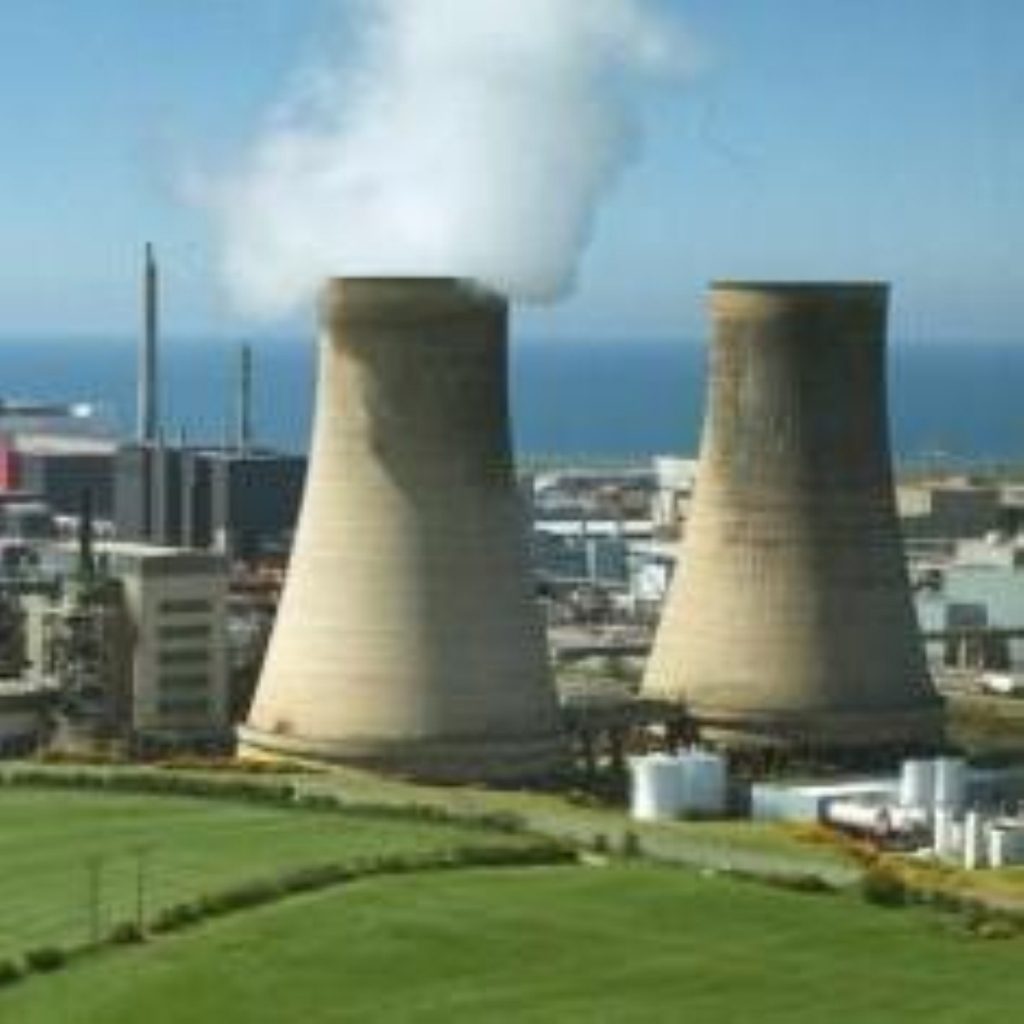Energy review confirms nuclear future
Nuclear power will make a “significant contribution” to providing Britain’s energy in the future, the trade and industry secretary has announced.
Alistair Darling said the government’s energy review concluded that while some of the shortfall caused by old power stations going out of service can be covered by renewable energy, nuclear power would have to play a role.
The prime minister has already stated his preference for nuclear energy as part of a mix of renewables, such as tidal, wind and solar power, alongside greater energy efficiency measures, prompting widespread condemnation from campaigners.
However, today’s statement was not as strong as that made by Tony Blair earlier this year, when he declared that nuclear power was “back on the agenda with a vengeance”, and shadow trade secretary Alan Duncan questioned whether it said anything at all.


“The statement the secretary of state has just made proposes six new consultations, a new forum to be convened and says there’s so much more to consider. But there is no real policy, no real action, no real decision and no real energy review at all,” he said.
Mr Darling said the government’s aims in the future were to secure energy supply and tackle climate change, and to that end said it was vital to promote energy efficiency, in homes and businesses, and encourage the development of new clean energy.
“This is a critical moment to make informed choices to safeguard our quality of life for the coming decades. Today’s proposals will set out a framework within which the energy market will operate for the coming 30 to 40 years,” he said.
The target for the proportion of Britain’s energy to come from renewable sources was upgraded from 15 per cent to 20 per cent, and the trade secretary said the proposals as a whole would see a reduction of up to 25 million tons of carbon emissions a year by 2020.
However, while Mr Darling insisted the energy review statement set out a “very clear sense of direction”, to cut carbon emissions and ensure security of supply, the Conservatives condemned it as a “grave and perilous let down”.
“It amounts to nothing,” Mr Duncan declared. “We’ve been told for months that an urgent decision must be made now, that delaying would risk the lights going out, but today all we get is this.”
He admitted his party supported much of what was in the review, including a tougher carbon pricing regime, which rewards firms producing low carbon emissions, and the expansion of the EU emissions trading scheme (ETS) to include smaller businesses.
The Tories also backed a framework to encourage investment in new technologies, changes to the planning laws to speed up the building of the next generation of power stations and greater emphasis on encouraging decentralised energy production.
And on nuclear energy, Mr Duncan welcomed the apparent refusal to offer subsidies for nuclear power – the secretary of state said the private sector should take the initiative in building new power stations, funding them and covering the cost of decommissioning.
But he warned: “This review could have done so much more – three years ago we were promised final decisions, but today even, we have not got them. This is a grave and perilous let down.”









